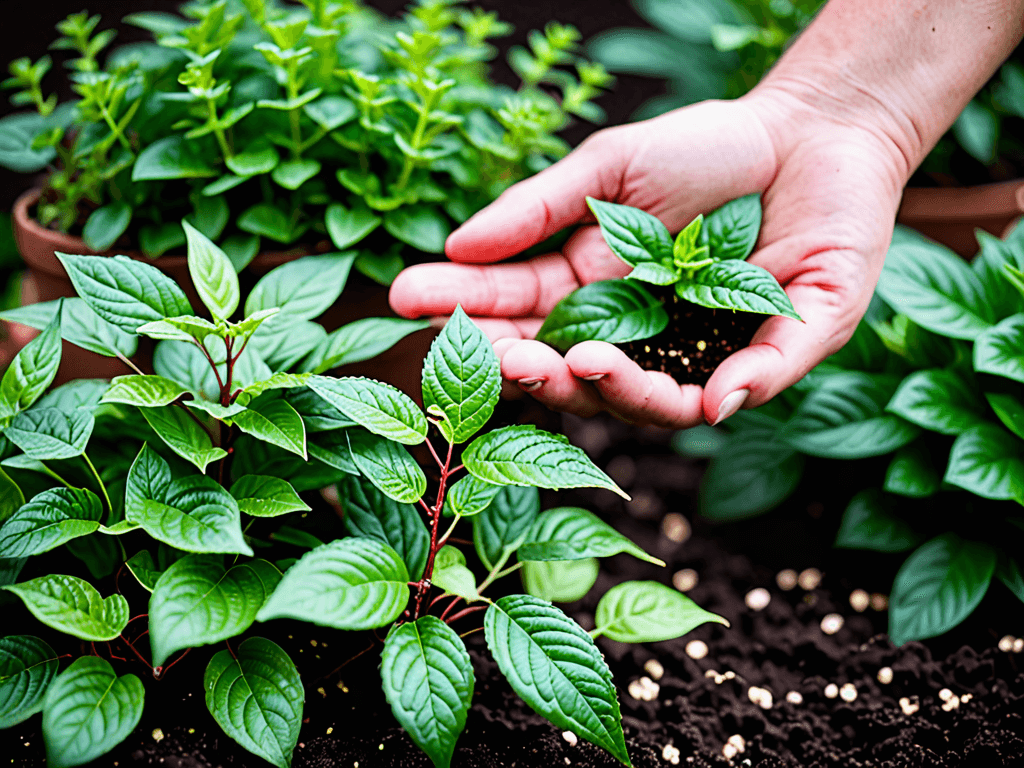Sustainable Gardening Tips are essential for anyone looking to create an eco-friendly garden. By adopting green practices, you can ensure your garden not only thrives but also supports the environment. In this article, we delve into understanding sustainable gardening, choosing the right plants, conserving water, and more. Whether you’re a seasoned gardener or a beginner, these tips will help you create a vibrant, eco-friendly garden.
Understanding Sustainable Gardening
Sustainable gardening focuses on nurturing plants with minimal impact on natural resources. It encourages gardeners to use native plants, as they require less water and are better suited to local climates.
Understanding this concept can transform your approach to gardening, making it both environmentally friendly and rewarding.
Embrace biodiversity by planting a variety of species to support a balanced ecosystem. It’s not just about growing beautiful plants, but doing so in harmony with nature.
Benefits of Eco-Friendly Gardening
Eco-friendly gardening offers numerous benefits to both the environment and gardeners. By utilizing natural resources wisely, it reduces water usage and promotes healthier soil.
Organic methods minimize the need for chemical fertilizers and pesticides, helping protect local wildlife from toxic substances.
Cost savings is another advantage, as gardeners can rely less on costly synthetic inputs and tap into renewable sources like rainwater.
Moreover, eco-friendly gardening often results in richer biodiversity, attracting beneficial insects and pollinators that help maintain a balanced garden ecosystem.
By adopting sustainable practices, gardeners contribute positively to the planet while enjoying lush, healthy gardens.
Choosing the Right Plants
Choosing the right plants for your garden is crucial for achieving a sustainable and thriving landscape. Consider selecting native species that are best adapted to your local climate and soil conditions, as they often require less water and fertilizers. These plants support local wildlife and enhance biodiversity in your garden.
Perennials are a great choice since they return each year, reducing the need for replanting. Look for drought-tolerant varieties if you live in an area with limited rainfall.
Mixing a variety of plant types can create a more resilient ecosystem that can withstand pests and disease, ensuring your garden flourishes throughout the seasons.
Water Conservation Techniques
Water conservation techniques are vital for sustainable gardening, ensuring plants receive just the right amount of hydration without waste.
Mulching is an effective method, as it reduces evaporation and keeps soil moist longer.
Consider using drip irrigation systems, which deliver water directly to the plant roots, minimizing runoff and evaporation.
Rain barrels can collect rainwater for use during dry spells, offering an eco-friendly alternative to using tap water.
Additionally, selecting plants with lower water requirements can significantly cut down on the need for supplemental watering, contributing to a more sustainable garden environment.
Soil Management Practices
Proper soil management practices are essential for a thriving and sustainable garden.
Enhance your soil by regularly adding organic matter such as compost or well-rotted manure, which improves soil structure and provides nutrients.
Consider practicing crop rotation, which involves changing plant locations each season to prevent soil nutrient depletion.
Another technique is to use cover crops, which protect the soil from erosion and help retain moisture.
Test your soil’s pH levels and make adjustments as needed to create the ideal environment for plant growth.
Incorporating these practices results in healthier plants and more productive gardens.
Composting and Waste Reduction
Composting is a vital practice in reducing waste and enriching your garden soil.
By recycling kitchen scraps and garden waste, you create nutrient-rich humus that boosts plant health.
Start with a balanced mixture of ‘greens,’ like vegetable peels and grass clippings, and ‘browns,’ such as dried leaves or shredded paper, to aid the decomposition process.
Ensure your compost is well-aerated by turning it regularly, as this helps speed up the breakdown of materials.
Using a compost bin or a simple heap, you can reduce the waste you send to landfills while creating a valuable addition to your garden.
Composting not only supports sustainable gardening but also contributes significantly to household waste reduction.
Pest Control the Natural Way
Natural pest control methods are effective and environmentally friendly, helping maintain the balance in your garden ecosystem.
Encourage beneficial insects like ladybugs and lacewings, which prey on harmful pests.
Planting herbs such as basil, mint, or lavender can also act as natural repellents to deter unwelcome bugs.
Use homemade sprays made from garlic or neem oil to ward off insects without using harsh chemicals.
Implementing crop rotation and companion planting can prevent infestations by disrupting the life cycle of pests.
By focusing on these natural strategies, you can protect your garden while minimizing your impact on the environment.
Creating a Biodiverse Garden
Creating a biodiverse garden involves cultivating a variety of plant species to support a wide range of wildlife and promote a healthy ecosystem.
Start by planting a mix of native flowers, shrubs, and trees, as these attract different pollinators and birds.
Incorporate a range of perennials, annuals, and biennials to ensure year-round food sources and habitats.
Use layers in your planting design, from ground covers to tall trees, which mimics natural habitats and encourages biodiversity.
Water features like ponds or birdbaths can attract amphibians and birds.
Allow some areas to grow wild, creating a refuge for beneficial insects.
By embracing diversity, your garden becomes a vibrant, living space that enhances the environment.
Embracing sustainable gardening practices is vital for creating a healthy and environmentally friendly garden.
By selecting the right plants, conserving water, managing soil efficiently, and reducing waste, you contribute positively to the environment.
Implementing natural pest control and focusing on biodiversity not only enhances your garden’s health but also supports local ecosystems.
These practices help ensure that your garden thrives while minimizing its environmental impact.
As you integrate these strategies, remember that every small change can lead to significant benefits for both your garden and the planet.
FAQ – Frequently Asked Questions about Sustainable Gardening
What are the benefits of sustainable gardening?
Sustainable gardening reduces environmental impact, conserves resources, and supports local wildlife.
How can I conserve water in my garden?
Use techniques like mulching, drip irrigation, and collecting rainwater to efficiently manage water use.
What are some natural pest control methods?
Encourage beneficial insects, use companion planting, and apply homemade sprays such as neem oil.
Why is biodiversity important in a garden?
Biodiversity creates a balanced ecosystem, supports pollinators, and enhances the resilience of your garden.
What is the role of composting in gardening?
Composting recycles waste into nutrient-rich soil, improving plant health and reducing landfill waste.
How do I choose the right plants for sustainable gardening?
Select native and drought-tolerant plants that thrive in your local climate and soil conditions.


